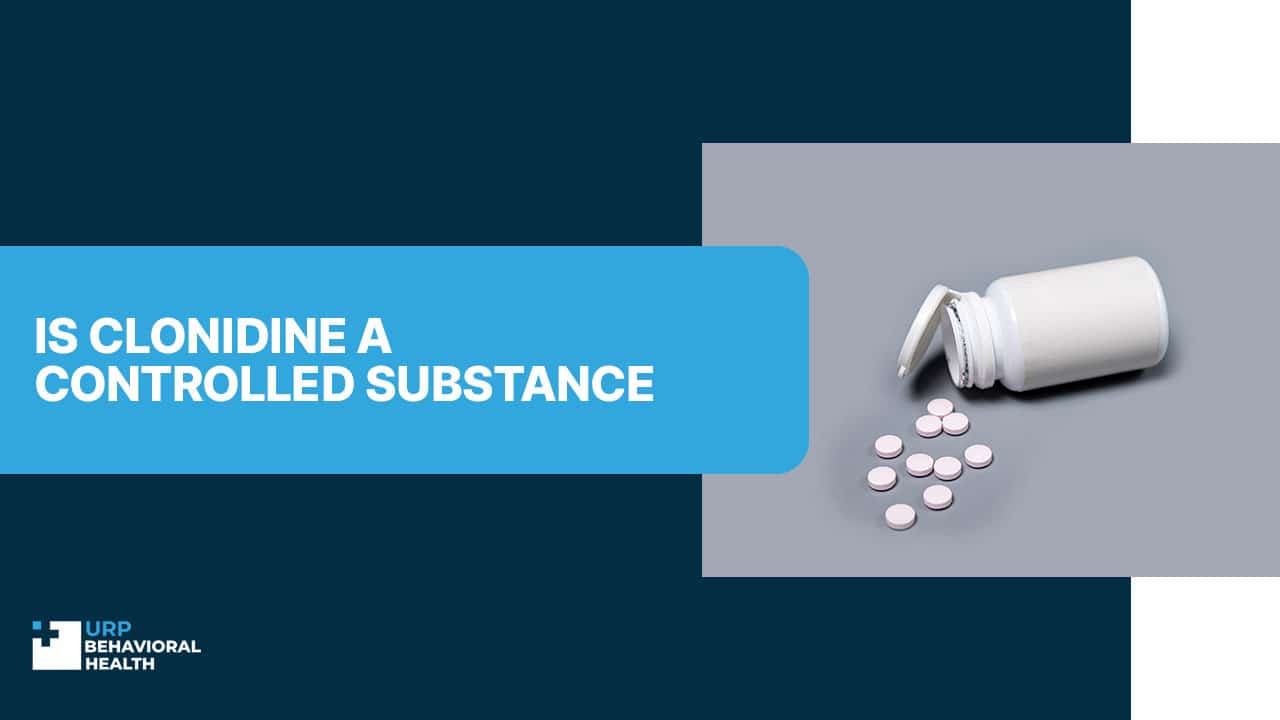
Is Clonidine a Controlled Substance?
Some modern medications sound scarier than they are with their Latin names and long information leaflets. Clonidine is one of such drugs. It is used across a wide range of health conditions with promising effects. Doctors prescribe it for hypertension, anxiety disorders, ADHD, pain management, and many more conditions. [1] Because of its use for the management of withdrawal symptoms in substance abuse, some patients perceive clonidine as a controlled substance. Let’s look at how this drug works, its use and side effects to find the answer.
Don’t wait - confidential help is available right now for you or your loved one.
Is Clonidine a Controlled Medication?
Clonidine functions as an α2-adrenergic receptor agonist. It activates specific receptors in the brain that help lower blood pressure and reduce heart rate by relaxing blood vessels. [2] These effects explain why it’s often prescribed to battle hypertension. Its analgesic feature also helps patients with major pain of various causes. Interestingly, “relaxing” powers affect not just blood vessels. That’s why psychiatrists took great interest in this drug for a number of disorders. [3]
In mental health care, clonidine is used to treat anxiety and PTSD. [4] It also helps patients with ADHD, especially children. Anxiolytic and mild sedative effects of the drug make it a relevant choice to cope with sleep disturbances caused by the psychiatric conditions listed above. Its use for substance abuse treatment to reduce withdrawal makes non-professionals ask whether clonidine is a controlled drug.
The answer would be no, as the key factors making clonidine controlled substance are missing. It doesn’t boost mood significantly or create a sense of extreme pleasure. Withdrawal symptoms after the dose reduction are mild and fall within normal body reaction to a lifestyle change. Research shows no evidence indicating the risk of dependency on this drug. Technically speaking, there is no clonidine on the controlled drug list defined by the US Drug Enforcement Administration or similar agencies in the UK or European countries.
Reach out today and let us create a treatment plan designed around your needs.
Clonidine Side Effects
When researching medications, people often wonder, ‘Clonidine is a controlled substance or simply a prescription drug?’. As with all well-researched and widely used medications, the list of its side effects is pretty long. Their severity and chance of occurrence are indicative of low-risk drugs. Typical side effects would include:
- Sleepiness and fatigue. The drug’s sedative properties may affect daily life, accumulating to make people feel tired even after rest.
- Mood changes. Despite being a drug to manage mood instability, the opposite effects can appear in some cases, like higher irritability and rapid shifts in emotions.
- Physical symptoms. Mouth dryness, constipation, and nausea can happen quite often in reaction to clonidine administration.
Such mild side effects usually bear no risks to patients’ health. Simple actions, like chewing gum for dry mouth, could compensate for them. It’s been observed that some of the undesired effects diminish or disappear with time when clonidine is taken long-term. [5]
Unfortunately, there is always a risk of more severe side effects. These can range from allergic reactions to severe low blood pressure or blood clotting. Just pay close attention to your physical and emotional state and bring up your worries before your doctor without hesitation.
Medical and scientific advances help us treat even more conditions nowadays, not only physical but psychiatric too. Sometimes such medications come with high risks and require extreme caution and governmental control. But clonidine is a different story. It has a wide range of applications and promising effects in a number of mental health issues treatments, like ADHD and anxiety disorders. Clonidine doesn’t bring risks of misuse or dependency development. This and the lack of major withdrawal symptoms make it not a controlled substance. At the same time, it is important to monitor one’s condition when using the drug and ask for medical advice when needed.
Our team will verify your insurance and design a plan tailored to your needs.
References:
- https://dailymed.nlm.nih.gov/dailymed/lookup.cfm?setid=99485427-a120-4fc7-bb61-25857d1900ec#:~:text=Clonidine%20hydrochloride%20extended%2Drelease%20tablets%20is%20not%20a%20controlled%20substance,potential%20for%20abuse%20or%20dependence.
- https://www.nhs.uk/medicines/clonidine/about-clonidine/
- https://www.ncbi.nlm.nih.gov/books/NBK531717/
- https://pmc.ncbi.nlm.nih.gov/articles/PMC8186558/
- https://www.mayoclinic.org/drugs-supplements/clonidine-oral-route/description/drg-20063252
















